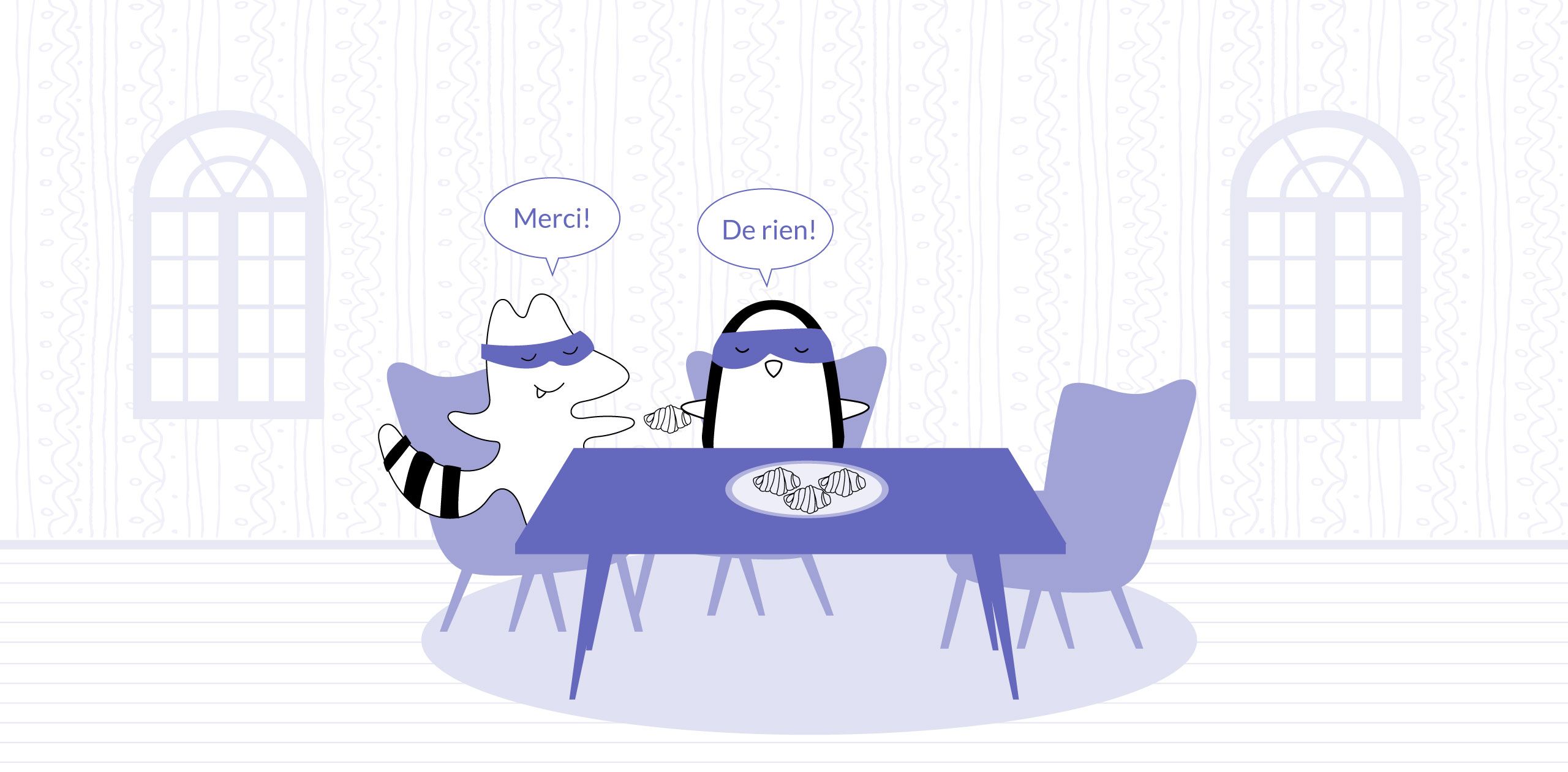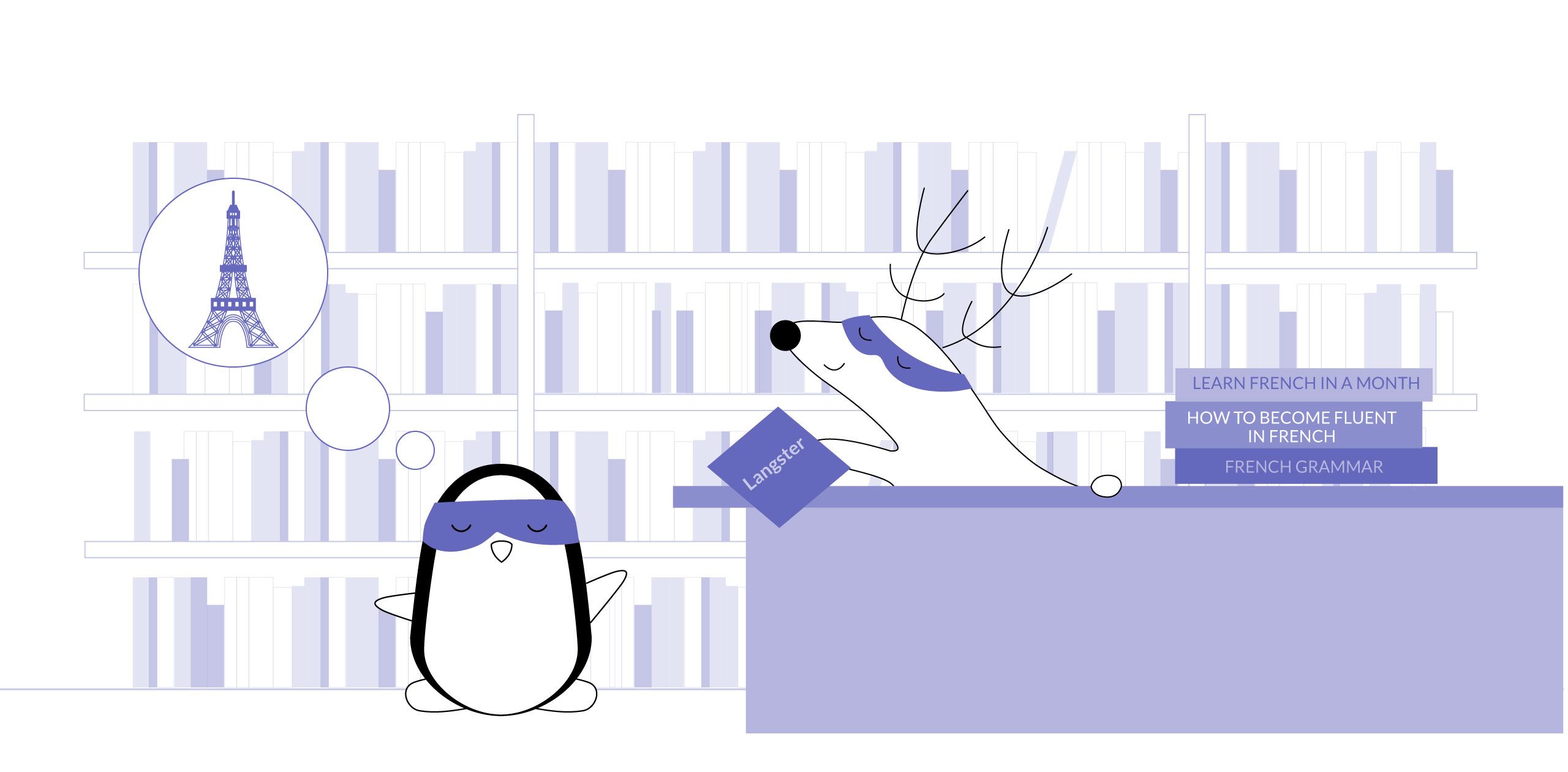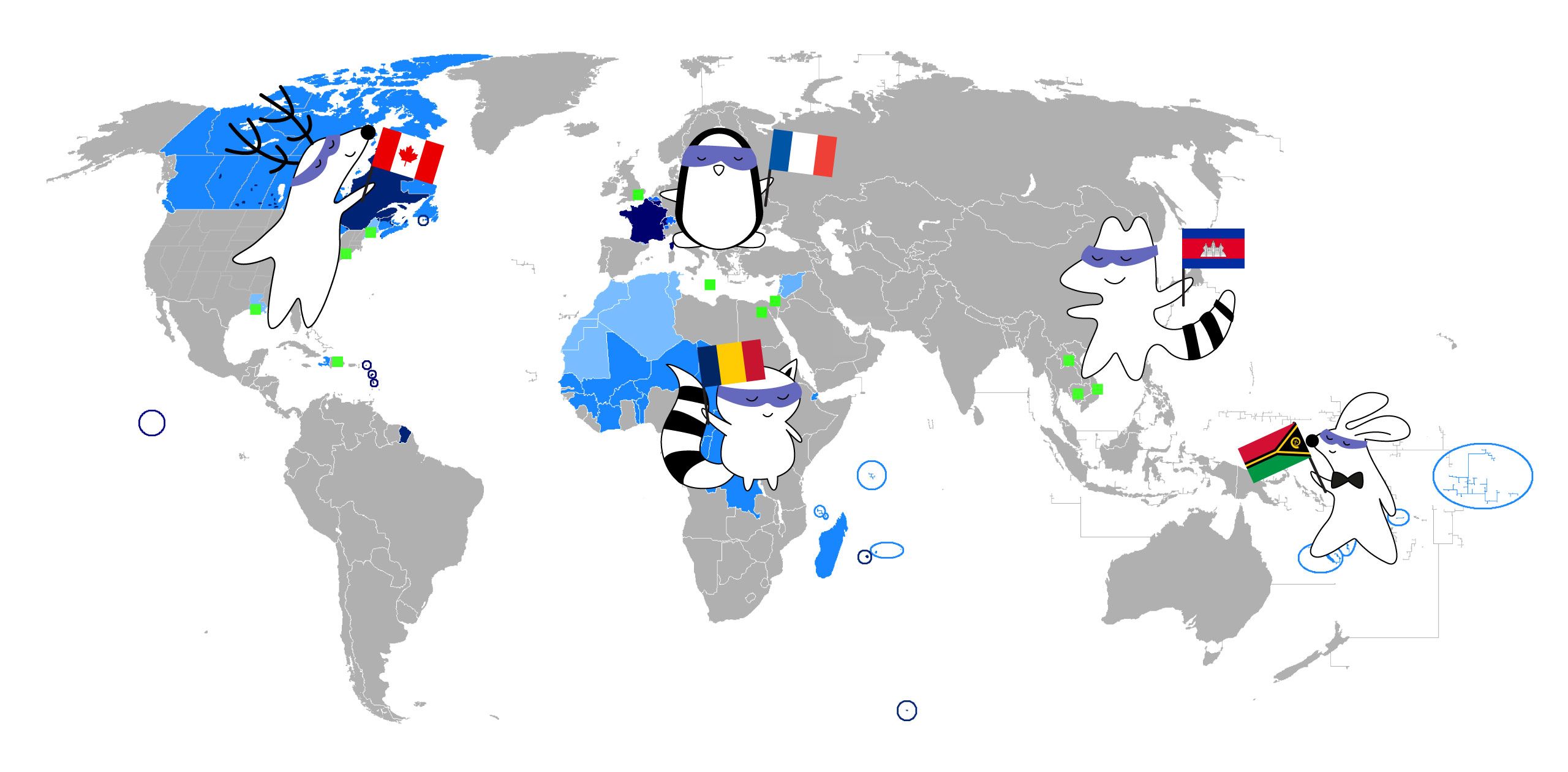
French is officially spoken in 29 countries across multiple continents, but there are also many other places in the world where people use French as their second or third language. And even if you know French at a decent level, you still may come across many irregularities in both grammar and pronunciation.
When learning French, you will most likely encounter its “official” variant - standard European French.
Learn French with Langster
But, depending on your goals and objectives, you might need to learn more about other ways the French language is used. For example, Canadian French.
Not only will that help you in case you decide to visit Quebec or other French-speaking Canadian provinces. Also, knowing the differences between Canadian and Parisian French will also help you avoid many language mistakes when using the traditional variant, such as Joyeux anniversaire.
Today, let us help you dive deeper into the differences and similarities between the Canadian and Continental (also known as Parisian/Metropolitan) French. Below, you will find all the aspects of how these two variants differ - from history and culture to vocabulary, pronunciation, and grammar. Read on.
History of Canadian French (Québécois)
Language is deeply connected with culture, so when talking about the differences between Canadian and Parisian French, it is also crucial to mention some historical aspects that influenced both groups. As we have already talked about the history of the French language, it's now time to go over the brief story about the formation of the French Canadian language.
The Quebec French (Québécois) is based on the 17th and 18th century Parisian French, as it was during this period that North America was colonized by the Europeans. The French colonists settled in New France, bringing with themselves the Classical French as well as the dialects from the areas surrounding Paris and langue d’oil.
In the mid-18th century, another historical period occurred that impacted Quebec French hugely. The English colonization made the French elite leave the province, and the English-speaking minority took over the politics and economy. Because of this, the French language in Canada has been strongly influenced by English.
Apart from English, Canadian French was also influenced by First Nations languages from the Aboriginal people. For example, the Canadian French word for snowshoes - les babiches - comes from the Aboriginal language. In classic French, a snowshoe is une raquette à neige.
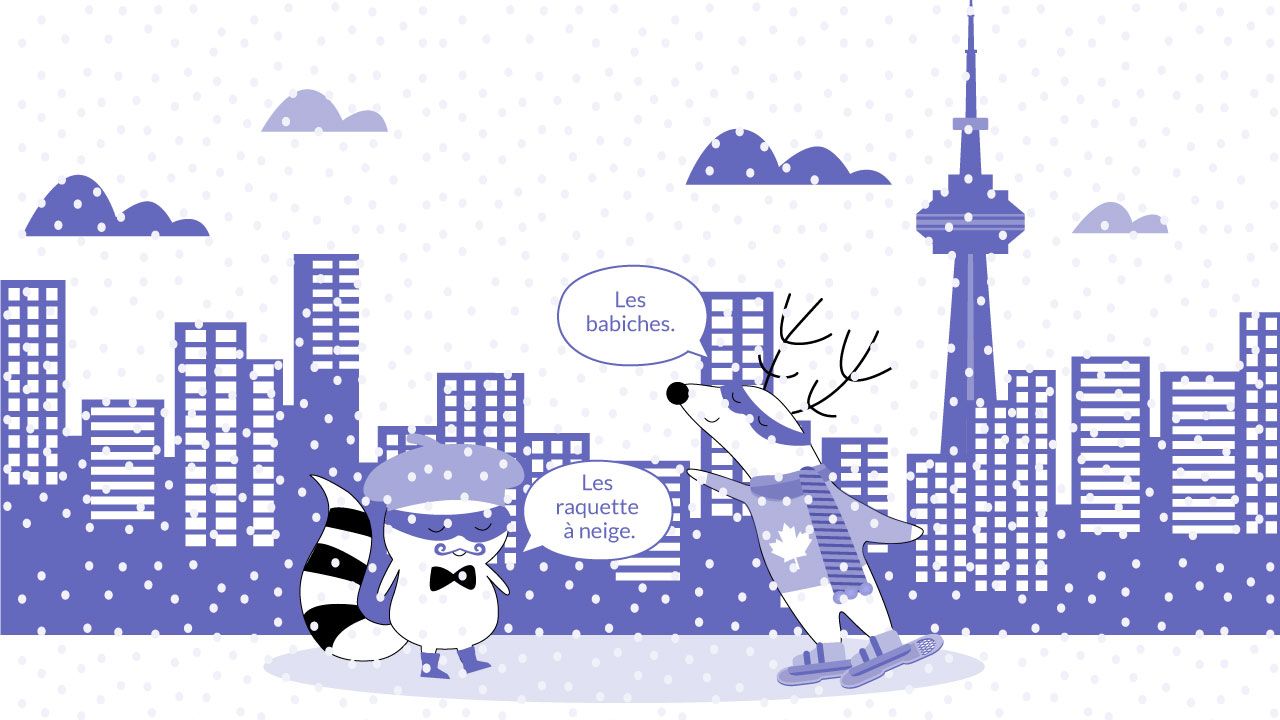
In the late 19th century, as Canada and America became more isolated from the European continent and more independent, more differences began occurring between the European French and Canadian French.
The French spoken in Canada started to evolve more independently, and new dialects occurred with it - Québécois (spoken in Quebec) and Acadian French (spoken by about 400,000 people, mostly in New Brunswick).
The Differences
There are several differences between Canadian and European French, and most of them can be attributed to the political, historical, geographical, or cultural influence that Canada had on its French minority. This is what sets apart both forms of French and causes French Canadians and European French speakers to often miscommunicate.
Vocabulary
The most significant difference is, of course, the different vocabulary used in Canada and Europe. There are many Anglicisms, archaic words, and Aboriginal words in Canadian French, such as:
- English words adopted without alteration
- English words that have a French spelling
- English words translated directly into French
- Archaic expressions, such as mais que (but that) for “as soon as” and à cause que instead of parce que (because).
These words are often used in the French-speaking provinces in Canada but if you say them in France, it would be considered a mistake.
The Acadian French is the one with the most differences in its vocabulary. For example, in this dialect, septante, huitante and nonante are used for “seventy,” “eighty,” and “ninety.” These words are also used in Switzerland or Belgium.
There are also some very interesting differences between Quebecois and European French. For instance, there is a word dépanneur in both variants. However, in Québécois, it refers to a corner shop or a small grocery store, while in the Parisian French - it means a person who comes to your house to repair things, like a mechanic or electrician.
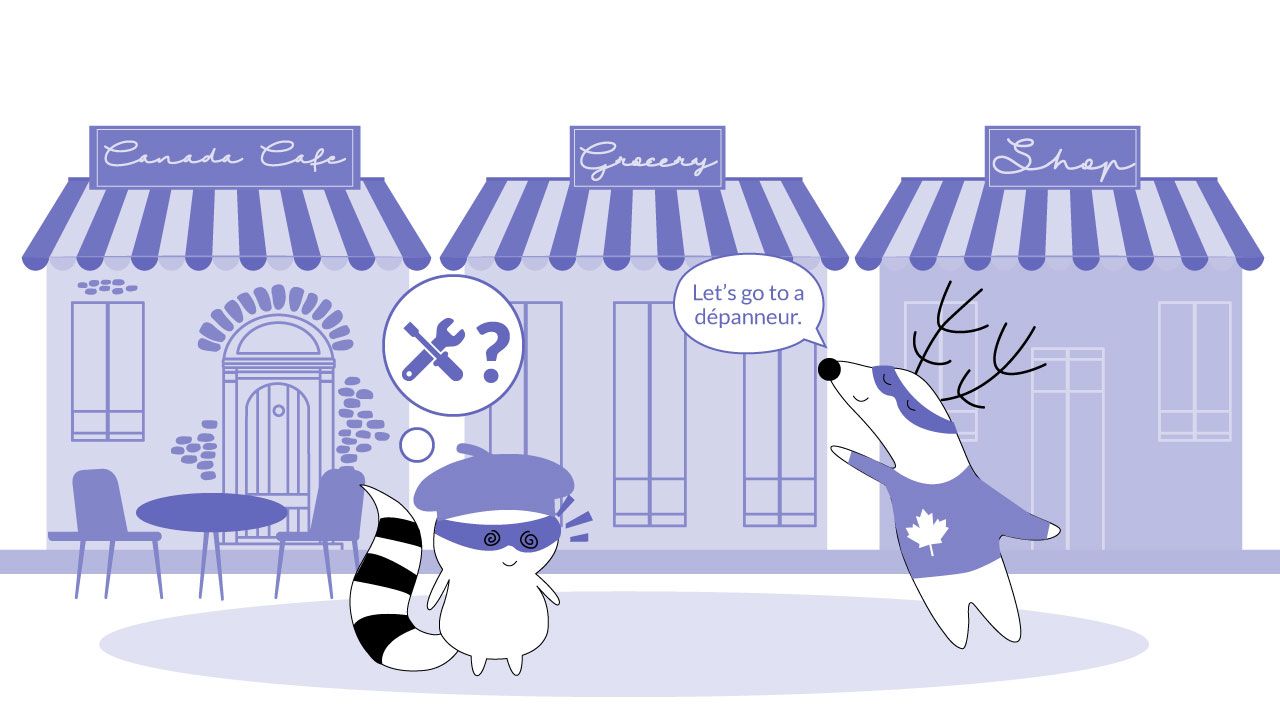
Grammar
When it comes to grammar, Canadian French also has some variations. Overall, it can often seem simpler and less formal than the standard French.
Here are some of the main differences in grammar:
- Prepositions in the Canadian French are often shortened - for example, sur la can become s'a.
- Subject and object pronouns are often different - for example, French-speaking Canadians will most often use on instead of nous.
- When it comes to formality, Canadian French is more relaxed than European French, and sentences don’t need to be as formal or structured. For example, Canadians will almost always use the pronoun tu instead of vous except in business conversations.
- Possessive adjectives are shortened - les nôtres (ours) becomes l'âtre.
Pronunciation
Vowels are sometimes pronounced differently in the Canadian French - for instance, ailleurs (elsewhere) is often pronounced [œʀ] instead of [æløʀ], and pâte (dough) becomes [pat]. The Canadian French also has its own accents and intonation.
Consonants are another issue - D and T are often pronounced as DZ and TS before the vowels U and I. For example, “fatigué” (tired) sounds like /fatsigué,/ and “mardi” (Tuesday) sounds like /mardzi/.
French-speaking Canadians also often clip the word endings - as with the word pâte above. You can often hear something like c’est correc’ instead of c'set correct (that's right) or vous aut’ instead of vous autres (you guys).
Formality and Casualness
The French-Canadians are known to be more casual than the European French. As mentioned above, they often will shorten sentences, drop subject pronouns - for example, Est-ce que tu parles anglais? (Do you speak English?) can become Parle-tu anglais?, and unlike in Europe, they will almost always use the pronoun tu.
An important thing to remember when visiting any French-speaking country is that you can always use metropolitan French when talking to people, but using Canadian French in many situations may simply sound rude.
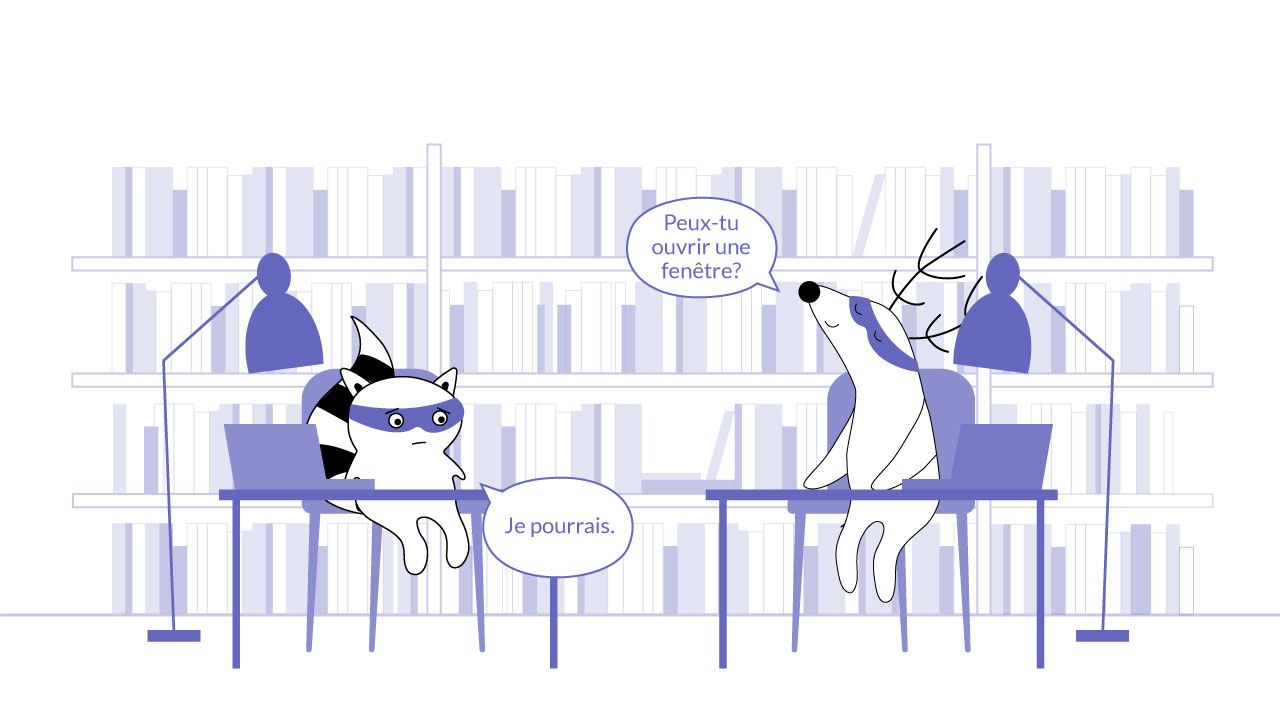
Slang and Local Expressions
Canadian French has a lot of different slang words. In general, Canadian French uses more slang than the European variant, which can often be confusing to other people.
For example, in Canada, pogner le beigne (to poke a donut) means "to do nothing," and tire toi une buche (to shoot yourself a log) - "to sit down.” There are many other idioms in Canadian that don’t make sense in traditional French or even in English - for example, baise-moué l’ail which literally means “kiss my garlic,” where “garlic” refers to your backside.
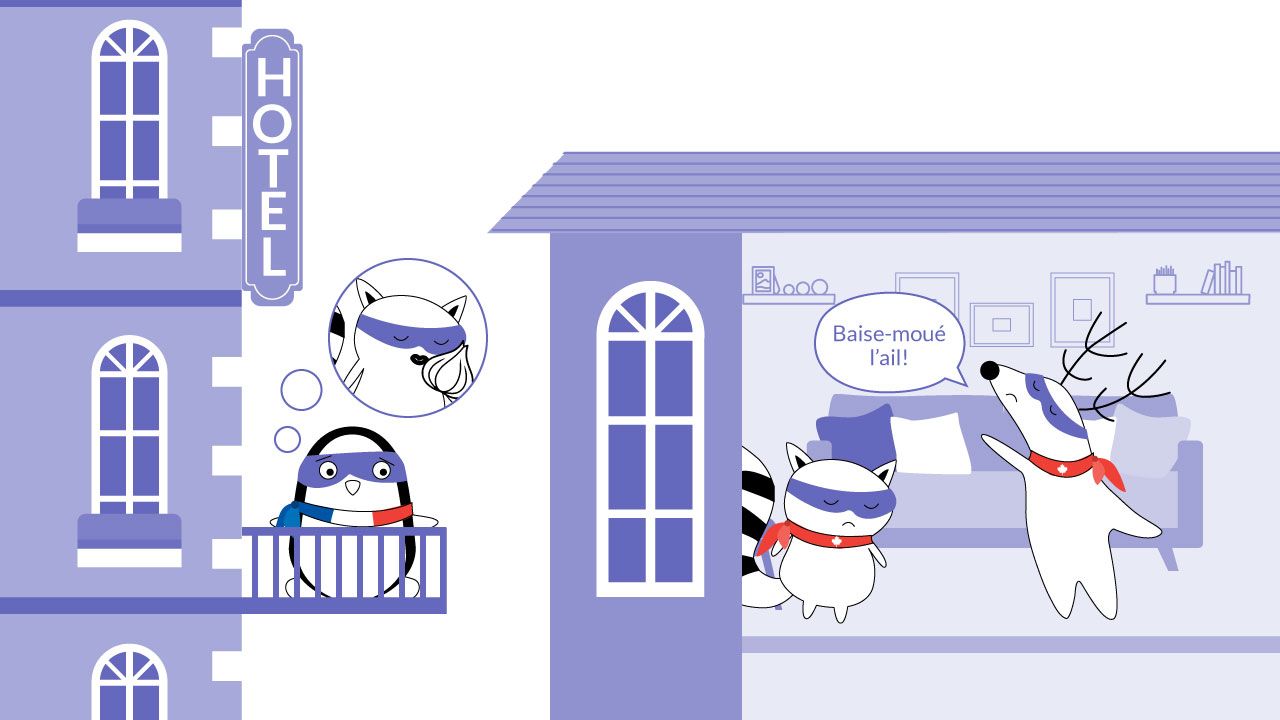
Check this article to see more Canadian words and expressions that are confusing to non-Canadians.
Is Canadian French Worth Learning?
If you do not need to learn Canadian French for job-related reasons, then the answer is: maybe. Most Canadians speak English as their first language which means that unless you are going there specifically to work or study, you will rarely ever find a use for your classic French skills.
On the other hand, if you happen to be a Francophile and want to visit Canada at some point in your life, knowing a bit of French might help you connect with more locals and get a better grasp of local culture. If English is your first language, you may also have an easier time hearing the French Canadian accent.
Moreover, if you desire to visit Quebec or other French-speaking provinces in Canada, learning at least the main differences and several important expressions is a must.
What Does That All Mean For You?
If you are going to be traveling through Canada, but don't plan on staying there for too long, it may not be worth the energy and time investment to learn Canadian French.
However, if you do want to expand your knowledge of the language or avoid miscommunication with any Francophone Canadians that happen to cross paths with you in other countries, then learning some basics before heading up north is a great idea.
And if you want to boost your knowledge about French, France, and the Francophone countries then check out other posts on our blog. There, we share some great tips for learning this tricky language, so you can learn to speak French fluently and with confidence.








